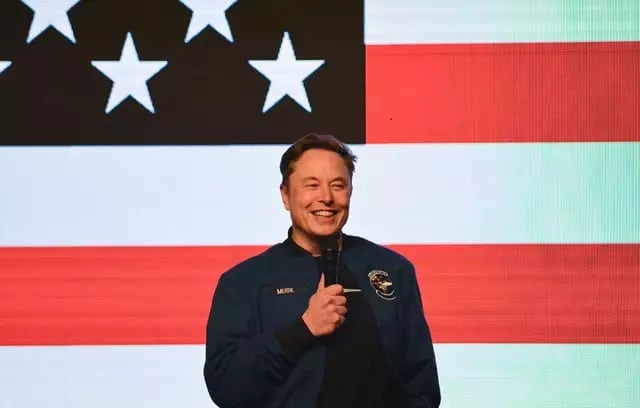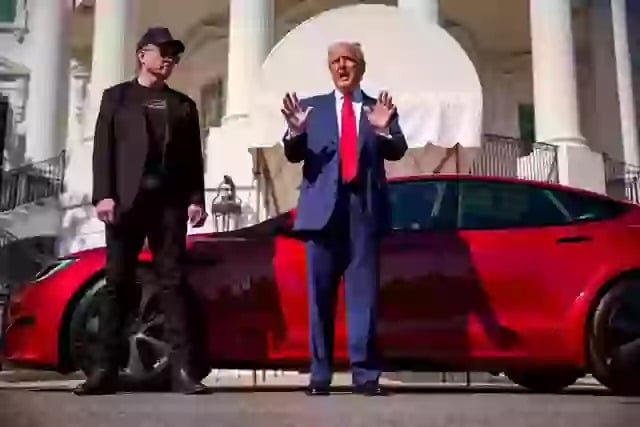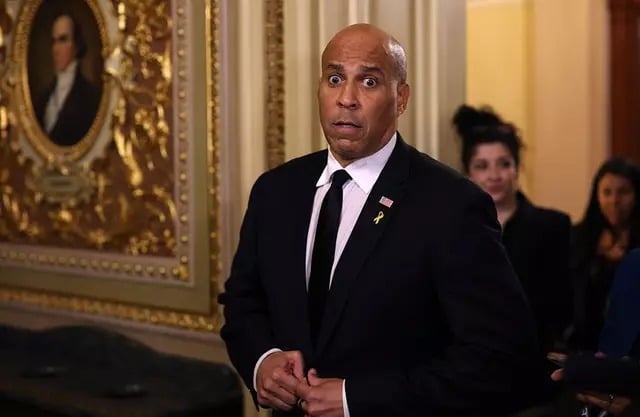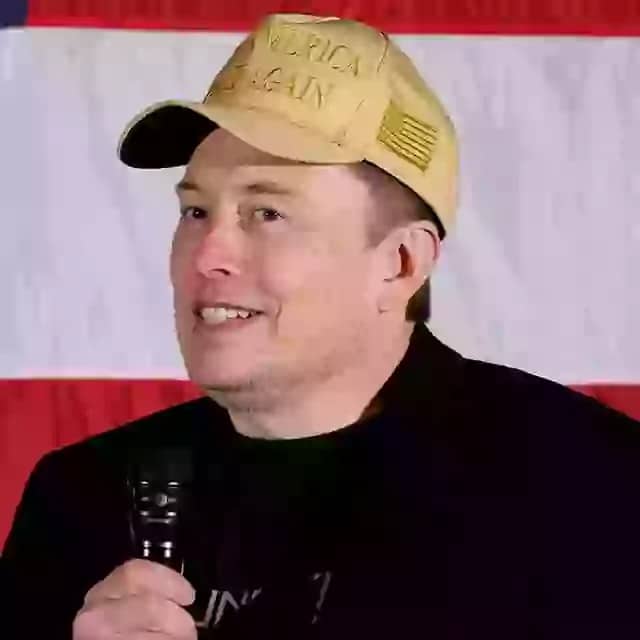As the U.S.-China trade battle intensifies, Elon Musk has taken aim at one of President Donald Trump’s top economic advisors, publicly criticizing him over recent comments about Tesla.
Following Trump’s unexpected announcement last week, a new round of import tariffs officially took effect today (April 9). In response to China’s 34% retaliatory tariff, the Trump administration has upped the ante with a staggering 104% tariff on Chinese goods.
Amid growing global tensions, friction is also rising within the U.S. Musk lashed out at Trump’s trade adviser Peter Navarro, calling him a “moron” in a post on X (formerly Twitter), adding that Navarro was “dumber than a sack of bricks.”
Musk’s sharp rebuke came after Navarro questioned Tesla’s role in the U.S. auto industry during a recent interview. Navarro claimed the country’s car sector had become “an assembly line for German engines and transmissions,” and added that Musk was “not a car manufacturer” but “a car assembler, in many cases.”
Musk fired back, calling those remarks “demonstrably false.” He emphasized that “Tesla is the most vertically integrated auto manufacturer in America with the highest percentage of U.S. content.” In a jab at Navarro’s credibility, Musk referenced the fictional trade expert Navarro created for his books, saying: “Navarro should ask the fake expert he invented, Ron Vara.”
The White House weighed in on the dispute on April 8, with Press Secretary Karoline Leavitt downplaying the controversy. “These are obviously two individuals who have very different views on trade and on tariffs,” she said, adding, “Boys will be boys, and we will let their public sparring continue.”
Before the fallout with Navarro, Musk had already voiced concern over the economic impact of Trump’s tariff strategy, acknowledging that Tesla would not emerge unscathed despite building vehicles in the U.S.
With the new tariffs now in effect, markets have already begun to react, and financial analysts are bracing for a volatile week.
Meanwhile, China’s foreign ministry issued a strong statement condemning the U.S. tariffs and urging a shift toward dialogue. Ministry spokesperson Lin Jian accused the U.S. of “arrogant and bullying behavior,” warning that indiscriminate enforcement of trade penalties would only escalate tensions. He added, “If the U.S. really wants to solve the problem through dialogue and negotiation, it should adopt an attitude of equality, respect, and mutual benefit.”
Tariff Turmoil: Elon Musk Breaks with Trump Over $100 Billion Auto Tax
Tensions between Elon Musk and President Donald Trump may be bubbling once again, as new vehicle tariffs take effect—posing serious risks to Tesla and the broader auto industry.
The Trump administration is moving ahead with a 25% tariff on all passenger vehicles and vehicle parts not manufactured in the United States. The White House estimates the policy could impact nearly half of all vehicles sold in the U.S., generating as much as $100 billion annually in revenue. While Canada and Mexico are temporarily exempt under the USMCA free trade agreement until May 3, other countries—including China—are squarely in the crosshairs.
Tesla, long touted as a “Made in America” success story, is not immune to the fallout. Despite assembling its vehicles domestically, the company relies heavily on foreign-made parts, including steel and aluminum sourced from Canada and Mexico—both of which are subject to tariffs under other provisions of the administration’s trade crackdown.
“Important to note that Tesla is NOT unscathed here,” Musk wrote on X (formerly Twitter). “The tariff impact on Tesla is still significant.”
The billionaire CEO’s remarks appear to reflect growing unease within Tesla’s investor community. Initial optimism that Tesla could benefit from reduced competition quickly gave way to concern about increased production costs and supply chain uncertainty.
Musk’s close working relationship with the Trump White House has been well-documented. Since being appointed head of the newly created Department of Government Efficiency, he’s become a frequent presence in Washington. But as the administration presses ahead with its protectionist trade policies, that alliance may be fraying.
Supporters online responded to Musk’s comments with a mix of encouragement and criticism. One user applauded his efforts: “Short-term pain. Long-term gain. Don’t get distracted by the noise.” Another warned, “There will come a day when President Trump will no longer need you, and that day may not be long in coming.”
Meanwhile, China’s foreign ministry condemned the U.S. tariffs as “indiscriminate” and urged Washington to return to a path of “equality, respect, and mutual benefit.”
According to Electrek, more than 20% of Tesla’s components are imported from Mexico, with additional parts coming from Canada. If retaliatory measures escalate, the impact on Tesla—and other automakers—could be even more severe.
President Trump has already warned that if countries such as Canada or those in the European Union push back, he is prepared to raise tariffs even higher. “Much larger than currently planned,” he declared at a recent press briefing.
While the USMCA provides a narrow window for companies to adjust, the bureaucracy involved in reworking trade agreements and supply chains is likely to drag well beyond the May 3 deadline.
Senator Cory Booker Delivers 25-Hour Speech, Targets Musk and Tariffs
As tensions boiled over in Washington, Senator Cory Booker of New Jersey staged a historic 25-hour floor speech—aimed squarely at President Trump’s economic policies and the growing influence of Elon Musk.
Beginning at 7 p.m. Monday, Booker held the floor in a dramatic attempt to draw attention to what he called a “national crisis” fueled by divisive leadership and corporate overreach.
“In just 71 days, the president of the United States has inflicted so much harm on Americans’ safety, financial stability, and the core foundations of our democracy,” Booker said.
The senator harshly criticized Musk, labeling him “unelected and unaccountable,” and questioned his dual role as a private entrepreneur and a federal official. He referred to Musk as “the number one donor to the POTUS’ campaign,” and challenged the legitimacy of his position as head of the Department of Government Efficiency.
Booker continued, “Have we ever in the Senate or the House called him in for one oversight hearing to account for what he’s doing? To address the fears of a nation?”
In a moment of pointed satire, Booker mocked Musk’s staffing decisions, saying: “[He] fires people from the FAA, then begs them to come back. Fires the people that protect us from nuclear accidents—’Oh wait, come back.’”
Booker, who paused only briefly for breaks, even shared his strategy for managing bathroom needs, saying, “Where there’s a will, there’s a way.”
Calling Musk’s rise to influence “disturbing,” the senator suggested that members of Congress were being politically pressured by the billionaire tech mogul. “Call me a conspiracy theorist,” he said, “but what Elon Musk is doing to some of my colleagues on the other side of the aisle is threatening them.”
As the dust settles on both Capitol Hill and Wall Street, one thing is clear: America’s political and economic landscape is heading into uncharted territory—and Elon Musk finds himself right at the center of it.
Senator Cory Booker’s Epic 25-Hour Senate Speech Targets Musk and Trump’s Trade War
Senator Cory Booker made history this week by delivering the longest Senate speech on record—clocking in at 25 hours and 25 minutes. His marathon address was more than just a political stunt: it was a sharp critique of President Donald Trump’s aggressive trade policies and the growing influence of Elon Musk.
Booker warned that going up against Musk can come at a cost. “He’ll drag you on X, and awaken a mob against you,” the senator said, referring to the billionaire’s tendency to publicly criticize opponents on social media.
As the speech gained attention, many were curious about how Booker managed basic human needs during his record-breaking performance. According to a spokesperson who spoke with TMZ, Booker did not wear a diaper or leave for bathroom breaks. Instead, he fasted and intentionally dehydrated himself for days leading up to the event. CNN’s Manu Raju reported that Booker only took occasional small sips of water to prevent muscle cramps.
Medical experts, however, are raising concerns. Urologist Dr. Rena Malik commented, “He probably has some real bladder dysfunction. That’s not normal.” Dr. Seth D. Cohen added that the average person urinates 7–8 times per day and warned of risks like UTIs or involuntary bladder contractions due to extreme retention.
Despite the potential health risks, Booker powered through and brought his speech to a close after 25 hours and 25 minutes, setting a new Senate record. Unsurprisingly, the first thing on his to-do list was likely a well-deserved trip to the restroom and some rest.
Elon Musk Clashes with Trump Over Tariffs: “We Need a Free-Trade Zone”
While Elon Musk and President Trump once appeared to be forging a powerful alliance—one that many believed would usher in a modern Gilded Age—that bond is now showing cracks amid a widening trade war.
Since Trump’s return to the White House in January, the administration has imposed sweeping tariffs targeting China, the EU, and beyond. These measures are hitting Tesla hard. While Musk remains the world’s richest man, his net worth has taken a hit in the wake of the tariff-driven market volatility.
Tesla, which depends on components from Canada, Mexico, and the European Union, is already facing mounting costs due to the new levies. Musk didn’t hold back during a video appearance organized by Italian Deputy Prime Minister Matteo Salvini. He said that the U.S. and Europe should aim to eliminate tariffs altogether.
“At the end of the day, I hope it is agreed that both Europe and the United States should move, ideally in my view, to a zero-tariff situation—effectively creating a free-trade zone,” Musk said.
He also criticized the EU for overregulating businesses: “There are too many rules and regulations that make it very difficult to create a company and do too much to protect large companies at the expense of small to medium-sized companies. Radical deregulation is necessary.”
Musk has also publicly mocked prominent Trump trade officials. U.S. Commerce Secretary Howard Lutnick became a target after defending a tariff on the uninhabited Heard and McDonald Islands, arguing that “leaving anything off the list invites exploitation.” Musk’s response? A laughing emoji and the comment, “This is funny.”
As for Trump’s former trade czar, Peter Navarro, Musk took aim at Navarro’s Harvard credentials, saying, “A PhD in Econ from Harvard is a bad thing, not a good thing. Results in the ego/brains >> 1 problem.” When one user defended Navarro, Musk quipped, “He ain’t built sh*t.”
President Trump has yet to directly respond to Musk’s criticism. However, during remarks on Air Force One, he doubled down on his trade stance: “Europe made a fortune with us. They’ve treated us very badly—just like China. That’s going to change.”
Confusion and Criticism Mount Over Tariff Strategy
In what many are calling a chaotic and overreaching trade strategy, Trump recently implemented a 10% baseline tariff on all foreign imports—with significantly higher rates for countries like China and Cambodia.
Among the more puzzling decisions was a tariff on the Heard and McDonald Islands—remote, uninhabited territories with no significant trade relationship with the U.S. The move has drawn confusion and mockery online, with some wondering if the policy decisions were generated by an algorithm.
As tensions escalate and global markets react, the question remains: Are these aggressive tariffs setting the stage for a stronger American economy, or are they pushing the country—and allies—into dangerous economic territory?






